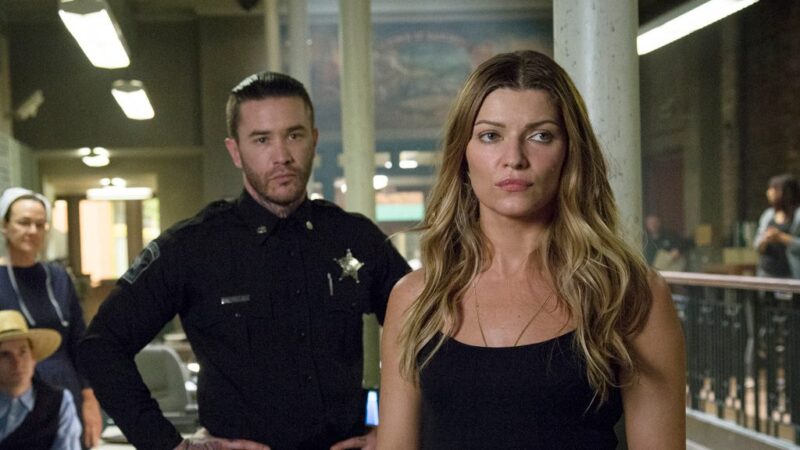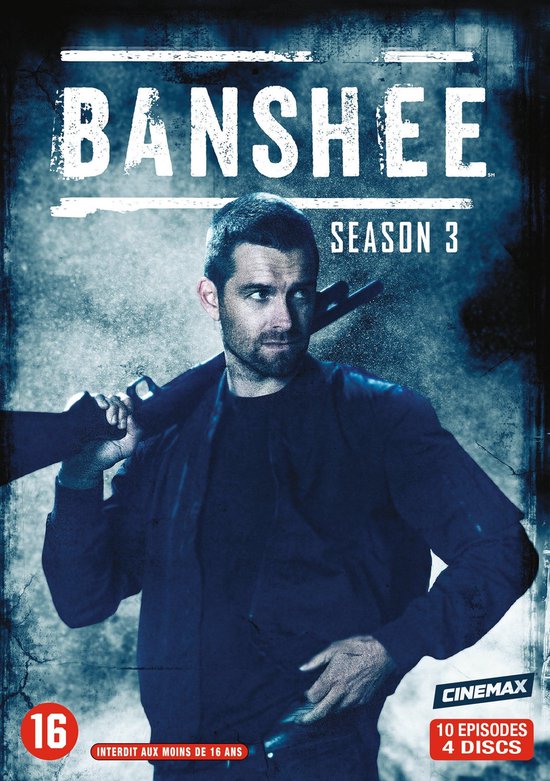

There will be those who watch it and think it's nothing more than a hot mess of daft plotting, graphic sex and brutally choreographed fights but those people are wrong. That's not to say Banshee doesn't have its subtle moments – Starr is commendably understated amid the mayhem – but that's not where its biggest pleasures are to be found. And while Boardwalk Empire's clever plotting has produced memorable payoffs each season, there's something undeniably thrilling about watching a drama that prefers the wham-bang reveal over the slow wait. Fond as I am of the languid pace of Treme and Mad Men, I can still thrill to the epic nature of Game of Thrones, the laconic wit of Justified or the enjoyable twists of The Walking Dead. Which, sometimes, is all viewers want from their glossy HBO dramas. Occasionally it can all feel a little over-stuffed – and there's no doubt that Schickler and Tropper's combination of sharp one-liners and stylised violence owes a debt to Quentin Tarantino – but it's also great fun. It's a fast-moving piece of pulp television and there's something very appealing about the way in which the writers gleefully layer crazy plot on top of crazy plot in contrast to the slow-burning, gently paced glossy dramas we've become inured to. The Eastwood comparisons are surprisingly apt for there is more than a hint of western about Banshee – what is Lucas Hood but a modern day gunslinger come to clean up town? But what really makes it work is its trashy sensibility.

Throughout it all strides New Zealand actor, Antony Starr, the still centre at the heart of the chaos, a man of few words but great presence who seems to be channelling Clint Eastwood's Man With No Name. The first episode alone features shootouts, conflicted Amish gangsters, double-crossing jewel thieves and the gloriously delivered line: "Is that a judge in your pocket or are you just happy to see me?" Similarly most dramas might think that one memorably creepy bad guy with family issues would be enough, Banshee gives us two: Ukrainian villain Mr Rabbit and local businessman/criminal Kai Proctor. Instead, Tropper and Schickler have a great deal of fun playing with conventions: in a more serious show the fact that our nameless hero has stolen another man's name might lead to Don Draper-style identity angst, in Banshee it simply means that he can break the law with impunity and violate the local townsfolk's human rights. Produced by True Blood creator, Alan Ball, who has described it as " high-octane entertainment, violent and clever, yet complex" and scripted by two well-regarded novelists, Jonathan Tropper and David Schickler, Bansheedoesn't take itself terribly seriously. It's an absolutely ludicrous plotline but Banshee's great charm is that it is thoroughly aware of just how exaggerated its drama is. If you were a newly released criminal on the run and hoping to uncover the truth about who set you up while avoiding the many bad men on your trail where would you hide? The answer, according to Sky Atlantic's newest drama Banshee, is in plain sight having stolen the identity of a dead man who just happened to be the new sheriff in town.


 0 kommentar(er)
0 kommentar(er)
